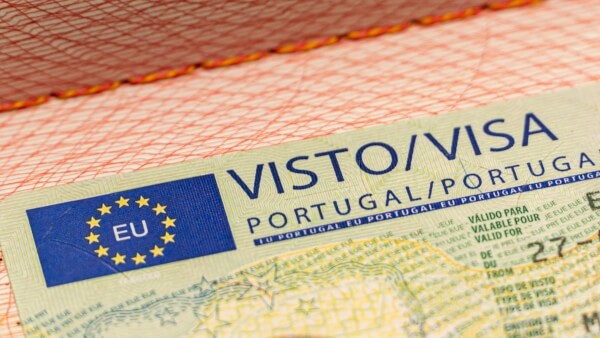Portugal digital nomad visa: Complete guide
Read our complete guide to the Portugal digital nomad visa (D8 visa), covering fees, documents, eligibility requirements and application process for 2025.

Moving to the Iberian Peninsula from the UK is equally exciting and scary, but one of the most important aspects that will contribute to a smooth landing is figuring out healthcare in Portugal.
If you’ve taken the plunge to swap the UK’s grey skies for Portugal’s sunny shores, understanding your healthcare options before you step off the airplane will be a great advantage - and make settling in a lot easier. In this guide, we’ll go over the public and private healthcare in Portugal, how to get coverage and look into the costs involved.
We’ll also introduce a cost-effective way to manage your money when moving to Portugal. With the Wise account from the money services provider Wise, you can send, spend and convert money in 40+ currencies at great mid-market exchange rates and low, transparent fees*. It’s not a bank account but offers some similar features, and your money is safeguarded.
Looking to take your savings with you? Wise can also help you with large transfers.
Learn more about the Wise account
| This article has been written in collaboration with Joana Mendonça, the Head of Legal at Global Citizen Solutions. |
Key takeaways:
Portugal has both a public healthcare system and private healthcare providers. Let’s take a closer look at both.
The Serviço Nacional de Saúde (SNS) is publicly funded and provides universal healthcare. While most people receive subsidized medical costs, SNS is free for children under 18 and people over 65.
Public healthcare in Portugal is relatively comprehensive, as it covers regular check-ups at local health centers (Centro de saúde), emergency care, referrals to specialists, and diagnostic tests such as blood tests, X-rays, MRIs, or ultrasounds.
It also provides access to subsidized prescription medications, access to psychologists and psychiatrists, and treatment for chronic and long-term illness.
To use Portugal’s healthcare system, UK expats need to register with SNS to get a utente number. It is the public equivalent of a private medical aid number.
But while Portugal’s medical services are reliable and some of the best in Europe, there are a few drawbacks. Waiting times for non-emergency treatments can stretch, and if you live in the countryside, English-speaking doctors might not be available.
That’s because Portugal has a disproportionate distribution of doctors and services.
Ideally, there should be about 5.6 doctors per 1,000 people on paper, but in reality, 70% of all doctors work in the Porto and Lisbon regions. It’s not unusual for a Lisbon-based doctor to visit rural towns once or twice a week.¹
Many UK expats who are moving to Portugal decide to get private healthcare if they prefer health coverage with more benefits. This generally provides faster, more flexible access to medical services than the public system.
While it provides you with the same basic treatment coverage as public healthcare, it also allows you to get rapid access to specialists, dental care and shorter waiting times for treatments with English-speaking doctors.
Portugal has several reputable private healthcare providers. Among the best-known hospital groups are CUF, Hospital da Luz, and Lusíadas, all offering extensive networks across the country, notably in Lisbon, Porto, Algarve, and Madeira.
Popular international insurers include Allianz Care, Bupa Global, and Cigna, while Portuguese options include Fidelidade, Medis, Ageas Seguros, and Medicare.
As a bonus, many of the private medical centers and hospitals have more modern facilities and state-of-the-art technology than public hospitals.
Signing up for public healthcare in Portugal is a relatively easy process. Here’s a quick step-by-step guide on how to register for healthcare in Portugal as a UK expat:
Since the government largely funds SNS, costs for using the service are minimal.
When you go to a public hospital and have a utente number, you can expect to pay around €5.15 for a doctor’s consultation and €7.75 to see a specialist.⁵
Prescription medication is mostly free of charge or heavily subsidized, depending on the patient’s condition and the required medicine.
But you have to be careful with your money, though. Seeking medical advice at a private facility when you only have access to SNS can cost you dearly. For example, according to the private prices for Hospital da Luz Lisboa, instead of paying €5 for a first consultation, you can be charged between €65 and €221.⁶
Private health insurance makes this a bit more palatable. Even though it incurs a steep monthly fee, for many UK expats, the cost outweighs the anxiety of going to a public hospital and possibly dealing with a language barrier.
However, it's important to keep in mind that health insurance companies don't display their monthly premiums on their websites. To get an accurate cost, you'll need to get a quote or do an online simulation, which factors in the services and coverage you require.
Another thing to consider is the currency conversion rate and fees when paying these costs with your UK-issued bank card. Get the Wise card instead for a one-time fee of £7 (or the Wise virtual card for £0) to spend like a local in 150+ countries, including Portugal. This clever card automatically converts your pounds to the local currency whenever you spend, only adding a tiny, upfront currency conversion fee* – or it’s fee-free if you already have the local currency in your Wise account.
Moving to a new country that has worse healthcare than where you came from can put a serious damper on your experience. Luckily, Portugal and most of mainland Europe have excellent public healthcare systems.
Portugal ranks 4th in healthcare, scoring higher than countries like France, Australia and Ireland. For retirees, Portugal presents several insurance options that range from basic to comprehensive coverage. These plans are tailored to various needs, covering hospitalization, outpatient care, specialist consultations, and sometimes even international coverage.²
In recent years, significant enhancements to the healthcare system have been made possible through public-private partnerships for new hospitals, modifications to hospital management structures, pharmaceutical reforms, the reorganization of primary care, and the establishment of long-term care networks.
This has also led to an increased life expectancy for Portuguese people. The average life expectancy in Portugal in 2022 was 82.47 years, rising by 0.22% in 2023 to 82.65 and increasing by 0.18% to 82.80 in 2024.³
As part of SNS, Portugal provides mental healthcare at hospitals and local health centers. However, the specialized service remains underdeveloped compared to EU averages. There were only about 15 psychiatrists per 100,000 residents in 2022.⁴
For that reason, public mental healthcare covers only basic support, and if you want broader coverage, you would need to use private medical aid.
The country also provides various services tailored to women, including maternity and gynecological care.
Prenatal care is available through public and private health insurance, and expectant mothers generally find it easy to make appointments at local hospitals. However, in many regions, prenatal classes are restricted to those with private healthcare.
An advantage of Portugal’s public healthcare system is that children receive free coverage, regular health checks, and access to screenings, examinations, vaccinations, and nutritional healthcare.
A specialized SNS unit provides access to social workers, educators, speech therapists, or physiotherapists for children under six who are lagging in development.
At first glance, healthcare in Portugal and the UK appears quite similar, as both countries operate universal healthcare systems accessible to residents and citizens and largely funded by taxation.
Portugal’s SNS, much like the UK's National Health Service (NHS), offers comprehensive medical services, from general practice and specialist consultations to hospital treatments and emergency care.
However, some key operational differences exist. In Portugal, the SNS commonly uses a co-payment model, meaning you usually pay a small amount directly at the point of service, such as when visiting a doctor or obtaining a prescription.
The NHS, on the other hand, generally provides care without any direct charges for most treatments and prescriptions, with exceptions like dental or vision care in some cases.
Another difference is choice and convenience. Many expats in Portugal opt for private healthcare alongside public services due to shorter wait times, quicker access to specialists, and greater flexibility in choosing providers. In the UK, private healthcare is less common for general use, typically seen as supplementary rather than essential.
Both systems are reliable and comprehensive, but for UK expats, adapting to Portugal's approach may require some initial adjustment for those accustomed to the fully state-funded NHS model.
Looking for smart ways to manage your money between the UK and Portugal? Check out the Wise account. It's not a bank account but offers some similar features and your money is safeguarded.
With the Wise account, you can send, spend, hold and convert money in 40+ currencies, for low, transparent fees* and mid-market exchange rates close to what you see on Google.
You can also get a Wise card for a one-time fee of £7 (or the Wise virtual card for £0) to spend like a local in 150+ countries. This clever card automatically converts your pounds to the local currency whenever you spend, only adding a tiny, upfront currency conversion fee* – or it’s fee-free if you already have the local currency in your Wise account.
| Here’s an overview of the main benefits of using Wise: |
|---|
|
**Capital at risk. In the UK, Interest and Stocks are provided by Wise Assets — this is the trading name of Wise Assets UK Ltd, a subsidiary of Wise. Wise Assets UK Ltd is authorised as an investment firm and regulated by the Financial Conduct Authority (FCA). Our FCA number is 839689. We do not give investment advice, and you may be subject to pay tax. If you're not sure, seek qualified advice. You can find more information about the funds on our website.
Sources used:
Sources last checked on date: 21-Apr-2025
*Please see terms of use and product availability for your region or visit Wise fees and pricing for the most up to date pricing and fee information.
This publication is provided for general information purposes and does not constitute legal, tax or other professional advice from Wise Payments Limited or its subsidiaries and its affiliates, and it is not intended as a substitute for obtaining advice from a financial advisor or any other professional.
We make no representations, warranties or guarantees, whether expressed or implied, that the content in the publication is accurate, complete or up to date.

Read our complete guide to the Portugal digital nomad visa (D8 visa), covering fees, documents, eligibility requirements and application process for 2025.

Read our guide to Portugal Golden Visa for UK residents: a path to EU citizenship, Schengen travel, and more. Learn about investments and application steps.

Thinking of applying for a Portuguese passport? Read our guide on the Portugal citizenship by investment programme, featuring requirements, costs and benefits.

Read our helpful guide on how to transfer a UK pension to Portugal, including the steps, fees and taxes involved.

Discover everything you need to know about inheritance tax in Portugal. Our comprehensive guide covers the rates, who pays, how to calculate, and much more.

Thinking of starting a new life somewhere warm and sunny? Portugal might be just the perfect spot. In fact, UK natives are the second largest expat group in...